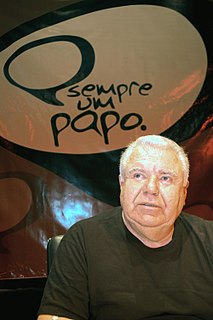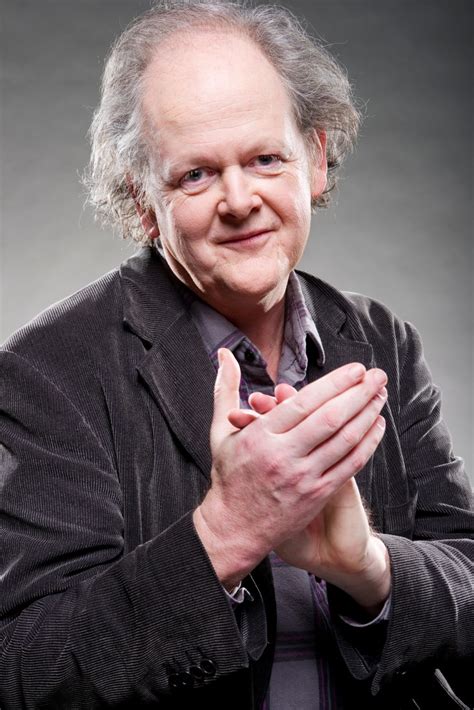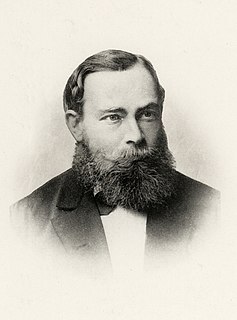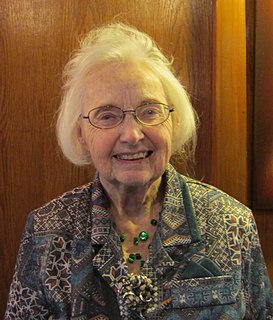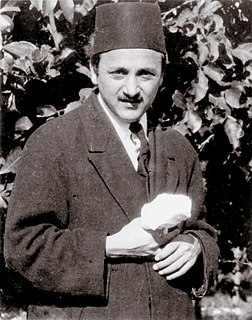A Quote by Stendhal
Every great action is extreme when it is undertaken. Only after it has been accomplished does it seem possible to those creatures of more common stuff.
Related Quotes
If there be any among those common objects of hatred I do contemn and laugh at, it is that great enemy of reason, virtue, and religion, the multitude; that numerous piece of monstrosity, which, taken asunder, seem men, and the reasonable creatures of God, but, confused together, make but one great beast, and a monstrosity more prodigious than Hydra.
The lack of resources is no longer an excuse not to act. The idea that action should only be taken after all the answers and the resources have been found is a sure recipe for paralysis. The planning of a city is a process that allows for corrections; it is supremely arrogant to believe that planning can be done only after every possible variable has been controlled.
We assert then that nothing has been accomplished without interest on the part of the actors; and — if interest be called passion, inasmuch as the whole individuality, to the neglect of all other actual or possible interests and claims, is devoted to an object with every fibre of volition, concentrating all its desires and powers upon it — we may affirm absolutely that nothing great in the World has been accomplished without passion.
Why does it seem to be more and more challenging to find a perfect mate or maintain a happy and compatible relationship? Was love always this difficult? Haven't we heard stories of people being truly fulfilled and happy in love? Is love a myth? There are more people on the planet than ever before, and traveling the world has never been easier. Not only that; now we can use technologies like the Internet to connect with others. So what is the problem? Why does it seem to be more complicated than ever to meet the right person and live happily ever after?
When you look into the faces of these quiet creatures who don't know how to tell stories--who are mute, who can't make themselves heard, who fade into the woodwork, who only think of the perfect answer after the fact, after they're back at home, who can never think of a story that anyone else will find interesting--is there not more depth and more meaning in them? You can see every letter of every untold story swimming on their faces, and all the signs of silence, dejection, and even defeat. You can even imagine your own face in those faces, can't you?
It is possible, of course, to operate with figures mechanically, just as it is possible to speak like a parrot: but that hardly deserves the names of thought. It only becomes possible at all after the mathematical notation has, as a result of genuine thought, been so developed that it does the thinking for us, so to speak.
It is natural to admire and revere really great men. They hallow the nation to which they belong, and lift up not only all who live in their time, but those who live after them. Their great example becomes the common heritage of their race; and their great deeds and great thoughts are the most glorious legacies of mankind.
The one function that most gods seem to have in common is to give human existence some ultimate purpose - and, while it is not possible to disprove an ultimate purpose, there does not seem to be any evidence for it. This is not to say, of course, that there is no purpose in life at all: we all make our own purposes as we go through life. And life does not lose its value simply because it it not going to last forever.
That Americans are entitled to freedom is incontestable on every rational principle. All men have one common original: they participate in one common nature, and consequently have one common right. No reason can be assigned why one man should exercise any power or preeminence over his fellow-creatures more than another; unless they have voluntarily vested him with it.
Regarding the passage on p. 163 of the 'Gleanings': The creatures which Bahá'u'lláh states to be found on every planet cannot be considered to be necessarily similar or different from human beings on this earth. Bahá'u'lláh does not specifically state whether such creatures are like or unlike us. He simply refers to the fact that there are creatures on every planet. It remains for science to discover one day the exact nature of these creatures.


